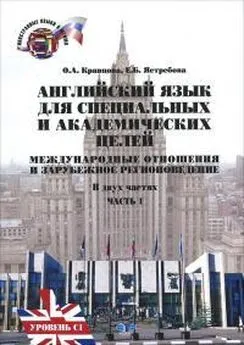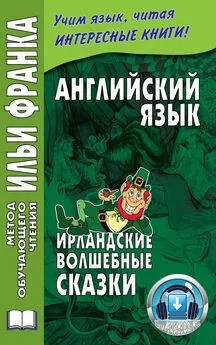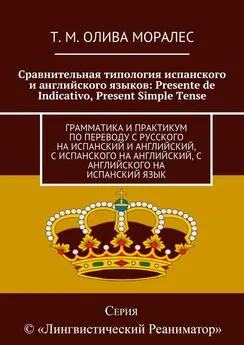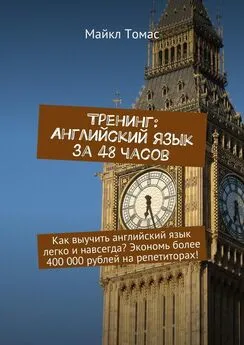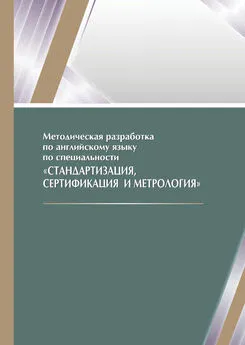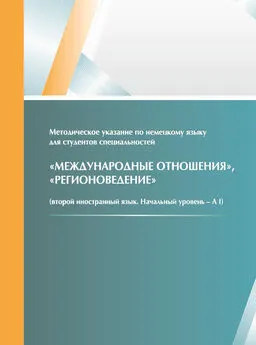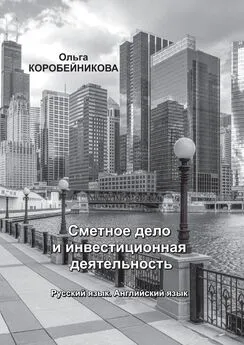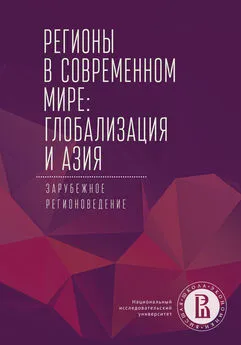Ольга Кравцова - Английский язык для специальных и академических целей: Международные отношения и зарубежное регионоведение. Часть 1
- Название:Английский язык для специальных и академических целей: Международные отношения и зарубежное регионоведение. Часть 1
- Автор:
- Жанр:
- Издательство:МГИМО-Университет
- Год:2015
- ISBN:978-5-9228-1210-8
- Рейтинг:
- Избранное:Добавить в избранное
-
Отзывы:
-
Ваша оценка:
Ольга Кравцова - Английский язык для специальных и академических целей: Международные отношения и зарубежное регионоведение. Часть 1 краткое содержание
Адресовано студентам четвертого курса факультетов и отделений международных отношений и зарубежного регионоведения.
Английский язык для специальных и академических целей: Международные отношения и зарубежное регионоведение. Часть 1 - читать онлайн бесплатно полную версию (весь текст целиком)
Интервал:
Закладка:
America has its own special qualities, as all countries do, but it is still a state embedded in a competitive global system. It is far stronger and richer than most, and its geographical position is remarkably favourable. These advantages give the United States a wider range of choice in its conduct of foreign affairs, but they don't ensure that its choices will be good ones. Far from being a unique state whose behavior is radically different from that of other great powers, the Unites States has behaved like all the rest, pursuing its own self-interest first and foremost, seeking to improve its relative position over time, and devoting relatively little blood or treasure to purely idealistic pursuits. Yet, just like past great powers, it has convinced itself that it is different, and better, than everyone else.
International politics is a contact sport, and even powerful states must compromise their political principles for the sake of security and prosperity. Nationalism is also a powerful force, and it inevitably highlights the country's virtues and sugarcoats its less savoury aspects. But if Americans want to be truly exceptional, they might start by viewing the whole idea of “American exceptionalism" with a more skeptical eye.
1. The Empire of Liberty is a theme developed first by Thomas Jefferson to identify America's world responsibility to spread freedom across the globe. Jefferson saw America's mission in terms of setting an example, expansion into the west, and by intervention abroad. Major exponents of the theme have been Abraham Lincoln (in the Gettysburg Address), Theodore Roosevelt, Woodrow Wilson, Franklin D. Roosevelt, Harry Truman, Ronald Reagan, Bill Clinton, and George W. Bush.
2. A City upon a Hill is a phrase from the parable of Salt and Light in Jesus's Sermon on the Mount. In Matthew 5:14, he tells his listeners, “You are the light of the world. A city that is set on a hill cannot be hidden.” In the twentieth century, the image was used a number of times in American politics. On 9 January 1961, President-Elect John F. Kennedy returned the phrase to prominence during an address delivered to the General Court of Massachusetts:
"...I have been guided by the standard John Winthrop set before his shipmates on the flagship Arabella three hundred and thirty-one years ago, as they, too, faced the task of building a new government on a perilous frontier. «We must always consider», he said, «that we shall be as a city upon a hill — the eyes of all people are upon us». Today the eyes of all people are truly upon us — and our governments, in every branch, at every level, national, state and local, must be as a city upon a hill — constructed and inhabited by men aware of their great trust and their great responsibilities.”
President Ronald Reagan used the image as well, in his 1984 acceptance of the Republican Party nomination and in his January 11, 1989, farewell speech to the nation:
«I've spoken of the shining city all my political life.. And how stands the city on this winter night? . After 200 years, two centuries, she still stands strong and true to the granite ridge, and her glow has held no matter what storm. And she's still a beacon, still a magnet for all who must have freedom, for all the pilgrims from all the lost places who are hurtling through the darkness, toward home.»
3. The Bretton Woods system of monetary management established the rules for commercial and financial relations among the world's major industrial states in the mid-20th century. The Bretton Woods system was the first example of a fully negotiated monetary order intended to govern monetary relations among independent nation-states.
A. In pairs, discuss how you understand the phrases/clauses below. If still in doubt, discuss them as a class.
1. ...President Obama landed in hot water ...
2. .patriotic chest-thumping
3. . those who make them are treading a well-worn path.
4. . they are simply the latest nation to sing a familiar old song.
5. The United States talks a good game on human rights and international law .
6. The US . has been all too willing to cozy up to dictators .
7. Given all the high-fives American leaders have given themselves .
8. .where progress in both areas trailed many other countries.
9. . the United States has a divinely ordained mission to lead the rest of the world.
10. But when a nation starts to think it enjoys the mandate of heaven., then reality is likely to deliver a swift rebuke.
11. International politics is a contact sport .
12. Nationalism . inevitably . sugarcoats its (the country's) less savory aspects.
Unit II. US: from Democracy to Empire?
Unit II. US: from Democracy to Empire?
1. What American politicians and on what occasions referred to their country as the “last best hope of Earth”, the “leader of the free world”, and the “indispensable nation”? What do these phrases imply? (Do at-home research to find answers to these questions.)
2. What is the effect of the distorted self-perception on the US foreign policy?
3. Is the idea of exceptionalism unique to the United States?
4. What arguments does the article provide to prove that the US does not behave better than other nations in terms of maintaining peace, promoting international law, and protecting human rights?
5. What do Americans usually attribute the success of their nation to? What in reality makes the US a powerful nation, according to the article?
6. Do you agree that American past success is to a great extent due to good luck?
7. How does the author prove that the actual contribution of the US to world stability and global progress has been relatively modest?
8. How does the article dispel the myth of the divine origin of American exceptionalism?
1. Do you share the author's viewpoint on American exceptionalism or do you think Americans rightly consider themselves exceptional? Explain your position.
2. Does the US, in your opinion, cope with the self-assumed role of global policeman?
3. Is there a good side to the US taking on responsibility for global issues?
a) the US role in the world
b) the US foreign policy
c) the current US — Russian relations

VOCABULARY PRACTICE 3

1. so important or useful that it is impossible to manage without it
2. existing in someone or something as a permanent and inseparable element, quality, or attri-bute
3. correspondence in form, nature, or character
4. to help a plan, idea, feeling, etc to develop
5. to take up the cause, ideology, practice, method, of someone and use it as one's own
6. to show to be false
7. to shut or keep in; prevent from leaving a place because of imprisonment, illness, discipline, etc.
8. extremely or hopelessly bad or severe
9. provided or supplied or equipped with (especially as by inheritance or nature)
10. accessible, liable, or subject to some influence, agency, etc.
11. contrary to someone' interests or welfare
12. something of use, advantage, or value
13. the process or state of irreversible breakdown or decline
14. to spend wastefully or extravagantly
Ex. 8. Continue the strings of collocations, translate them. Make up a sentence with one collocation from each list.
Ex. 9. Fill in the gaps with the words from Ex. 7 and Ex. 8 or their derivatives.
1. The head of the Teachers Federation says a full-scale strike scheduled for Tuesday is imminent
because the government _______________ an opportunity to negotiate a contract on the
weekend.
2. It is very difficult to govern a country in the aftermath of a revolution and political talent is
a scarce__________________.
3. As they age, baby boomers will be increasingly ________________ to ailments and conditions
such as heart attack, stroke, and diabetes.
4. In spite of his ______________record, Reagan is considered one of the nation's most popular
presidents, which goes to show how powerful a toothpaste smile can be!
5. Teaching human rights means both conveying ideas and information concerning human
rights and _________________ the values and attitudes that lead to the support of those
rights.
6. Egalitarianism, which is destructive of moral freedom, is ________________ to political
freedom.
7. The policies promoted by the outgoing Commission had an _______________impact on the
working classes and grass roots sections of society.
8. It is difficult to make sense of this information due to the ________________bias in design,
small sample sizes and outcomes of questionable relevance.
9. Unable to return to their pre-war lives, many Albanians _______________ the Revolution as
an opportunity to create a new life.
Unit II. US: from Democracy to Empire?
Unit II. US: from Democracy to Empire?
10. Nepal, the recently declared Republic in the Himalayas, is a small country generously ____________________ with natural beauty and ethnic and cultural variety.
11. Facts ________________ the statement issued by the United Nations that this year's flood is
the worst in the living memory.
12. Every day, in jails and prisons across the United States, young people under the age of 18 are held in solitary__________________.
13. If a state accepts a treaty but does not adapt its national law in order to _______________ to
the treaty or does not create a national law explicitly incorporating the treaty, then it violates international law.
14. The underlying causes of the __________________ are multiple, and include an assorted
domino effect that, when the last domino fell, took down financial giants and destroyed the working lives of many.
Individual work
Team work
Class work
Читать дальшеИнтервал:
Закладка:
